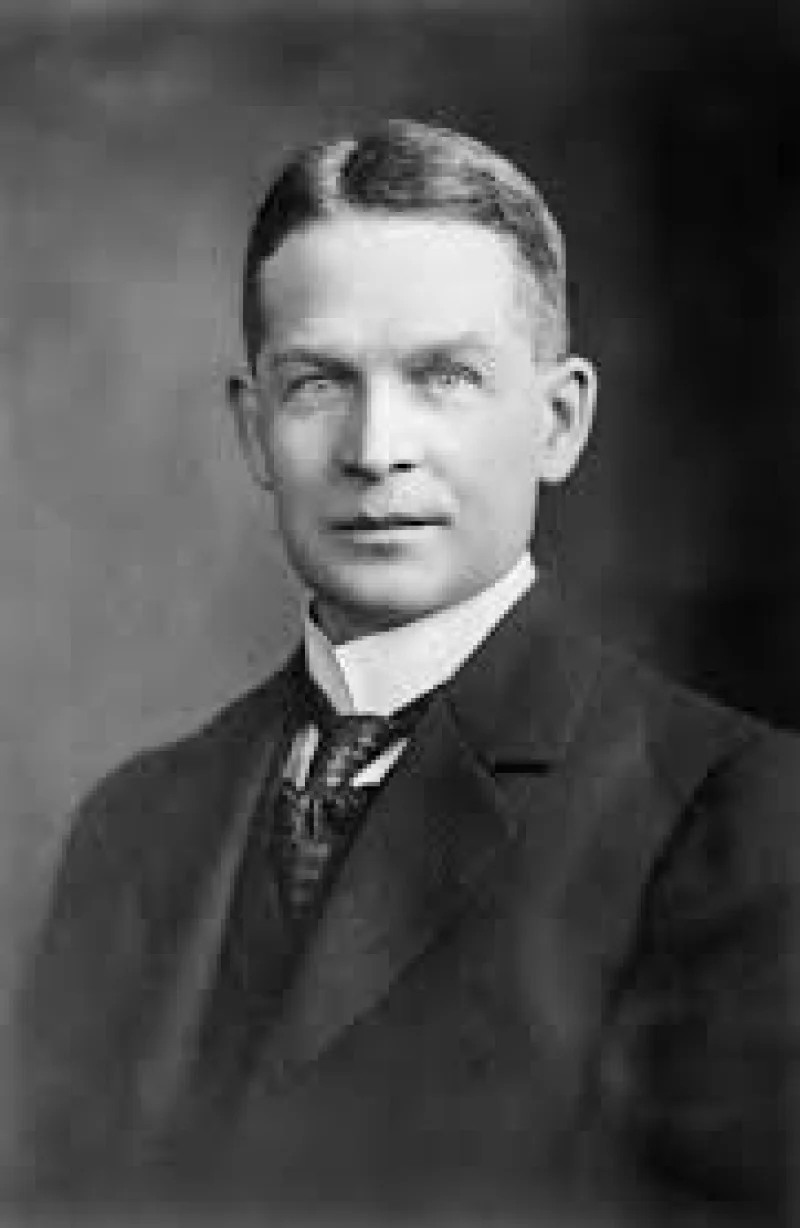Short Summary
Guglielmo Marconi was an Italian inventor and electrical engineer known for his pioneering work on long-distance radio transmission and his development of Marconi's law and a radio telegraph system. He is widely credited with the invention of the radio and was awarded the Nobel Prize in Physics in 1909 for his contributions to wireless telegraphy. His innovations laid the foundation for modern wireless communication, making him a pivotal figure in the advancement of technology.
Early Life & Education
Guglielmo Marconi was born on April 25, 1874, in Bologna, Italy, to Giuseppe Marconi, an Italian landowner, and Annie Jameson, an Irishwoman from the Jameson whiskey family. From a young age, he showed a keen interest in science and electricity, conducting experiments in his family's attic. He was educated privately and later attended the Livorno Technical Institute and the University of Bologna. Encouraged by his mother, Marconi pursued his interest in electromagnetic waves, drawing inspiration from the works of scientists like Heinrich Hertz and Oliver Lodge.
Career Highlights
Marconi's career took off in the late 1890s when he developed a wireless telegraph system. In 1896, he patented his first wireless telegraphy device and formed the Wireless Telegraph and Signal Company in London. By 1901, he achieved the first successful transatlantic radio communication between Cornwall, England, and Newfoundland, Canada. His company later became known as the Marconi Company, which played a key role in maritime communication. Marconi continued to innovate in radio technology, contributing to the development of shortwave and microwave transmission.
Major Achievements
- Established the first radio link across the Atlantic Ocean in 1901, demonstrating the feasibility of long-distance radio communication.
- Shared the 1909 Nobel Prize in Physics with Karl Ferdinand Braun for their contributions to wireless telegraphy.
- Founded the Marconi Company, which became a major force in the development and commercialization of radio technology.
- Pioneered the use of shortwave radio, which became essential for international broadcasting and communication.
Famous Quotes
- "Every day sees humanity more victorious in the struggle with space and time."
- "The coming of the wireless era will make war impossible, because it will make war ridiculous."
Interesting Facts
- Marconi's early experiments were conducted in his family's attic, where he built his first transmitter.
- He received support from the British Post Office, which was crucial in the development of his wireless telegraphy technology.
- He was appointed as a member of the Italian Senate in 1929.
- Marconi's work laid the groundwork for the development of radar during World War II.
- He was the first to establish regular transatlantic wireless communications.
Legacy / Influence
Guglielmo Marconi's contributions to wireless communication revolutionized the way information is transmitted over long distances. His innovations laid the groundwork for modern radio, television, and telecommunication systems. As a pioneer of the radio industry, Marconi's work has had a lasting impact on communications technology, facilitating global connectivity and influencing the development of future technologies.
FAQ
Q: Why is Guglielmo Marconi famous?
A: He is renowned for his pioneering work in the development of radio communication and for inventing the wireless telegraph.
Q: What was Marconi's major contribution to science?
A: He made significant contributions to the development of long-distance radio transmission and wireless communication technology.
Q: Did Marconi receive any notable awards?
A: Yes, he was awarded the Nobel Prize in Physics in 1909 for his contributions to wireless telegraphy.












